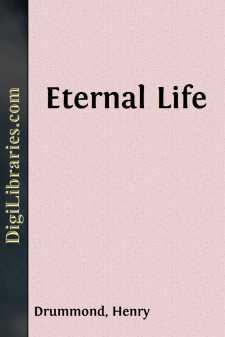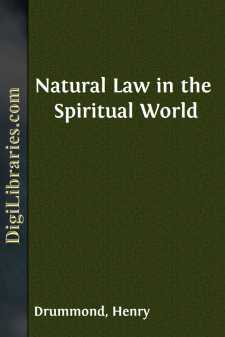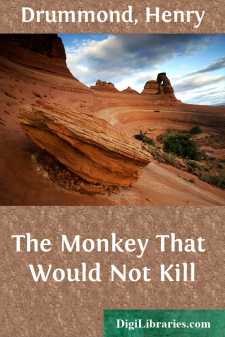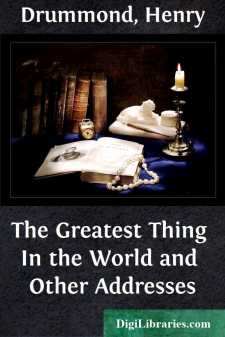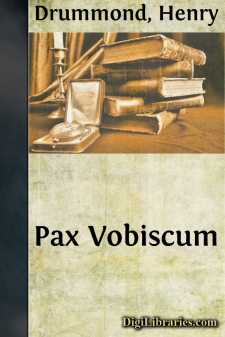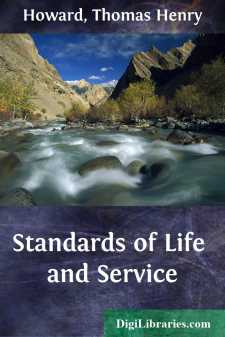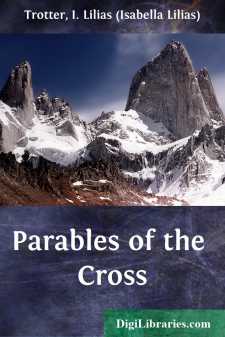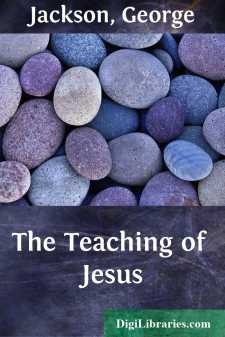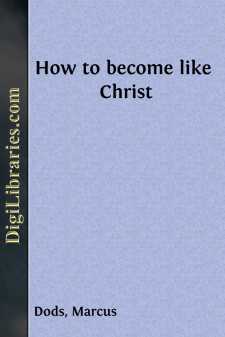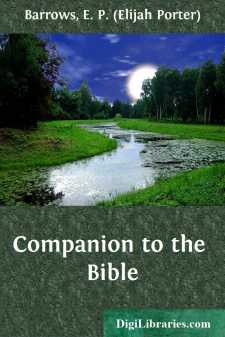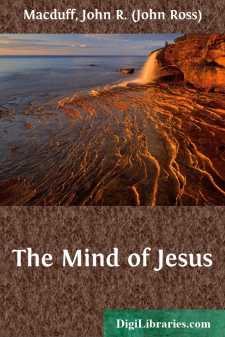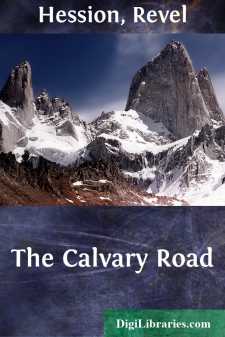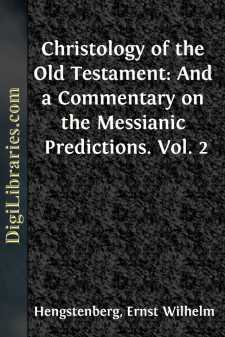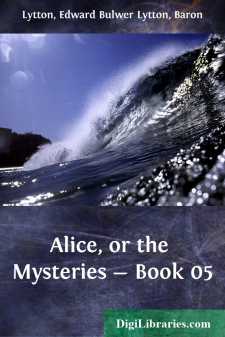Categories
- Antiques & Collectibles 13
- Architecture 36
- Art 48
- Bibles 22
- Biography & Autobiography 813
- Body, Mind & Spirit 142
- Business & Economics 28
- Children's Books 17
- Children's Fiction 14
- Computers 4
- Cooking 94
- Crafts & Hobbies 4
- Drama 346
- Education 46
- Family & Relationships 57
- Fiction 11829
- Games 19
- Gardening 17
- Health & Fitness 34
- History 1377
- House & Home 1
- Humor 147
- Juvenile Fiction 1873
- Juvenile Nonfiction 202
- Language Arts & Disciplines 88
- Law 16
- Literary Collections 686
- Literary Criticism 179
- Mathematics 13
- Medical 41
- Music 40
- Nature 179
- Non-Classifiable 1768
- Performing Arts 7
- Periodicals 1453
- Philosophy 64
- Photography 2
- Poetry 896
- Political Science 203
- Psychology 42
- Reference 154
- Religion 513
- Science 126
- Self-Help 84
- Social Science 81
- Sports & Recreation 34
- Study Aids 3
- Technology & Engineering 59
- Transportation 23
- Travel 463
- True Crime 29
Eternal Life
by: Henry Drummond
Description:
Excerpt
ETERNAL LIFE.
"This is Life Eternal—that they might know Thee, the True God, and Jesus Christ whom Thou has sent."—Jesus Christ.
"Perfect correspondence would be perfect life. Were there no changes in the environment but such as the organism had adapted changes to meet, and were it never to fail in the efficiency with which it met them, there would be eternal existence and eternal knowledge."—Herbert Spencer.
ONE of the most startling achievements of recent science is a definition of Eternal Life. To the religious mind this is a contribution of immense moment. For eighteen hundred years only one definition of Life Eternal was before the world. Now there are two.
Through all these centuries revealed religion had this doctrine to itself. Ethics had a voice, as well as Christianity, on the question of the summum bonum; Philosophy ventured to speculate on the Being of a God. But no source outside Christianity contributed anything to the doctrine of Eternal Life. Apart from Revelation, this great truth was unguaranteed. It was the one thing in the Christian system that most needed verification from without, yet none was forthcoming. And never has any further light been thrown upon the question why in its very nature the Christian Life should be Eternal. Christianity itself even upon this point has been obscure. Its decision upon the bare fact is authoritative and specific. But as to what there is in the Spiritual Life necessarily endowing it with the element of Eternity, the maturest theology is all but silent.
It has been reserved for modern biology at once to defend and illuminate this central truth of the Christian faith. And hence in the interests of religion, practical and evidential, this second and scientific definition of Eternal Life is to be hailed as an announcement of commanding interest. Why it should not yet have received the recognition of religious thinkers—for already it has lain some years unnoticed—is not difficult to understand. The belief in Science as an aid to faith is not yet ripe enough to warrant men in searching there for witnesses to the highest Christian truths. The inspiration of Nature, it is thought, extends to the humbler doctrines alone. And yet the reverent inquirer who guides his steps in the right direction may find even now in the still dim twilight of the scientific world much that will illuminate and intensify his sublimest faith. Here, at least, comes, and comes unbidden, the opportunity of testing the most vital point of the Christian system. Hitherto the Christian philosopher has remained content with the scientific evidence against Annihilation. Or, with Butler, he has reasoned from the Metamorphoses of Insects to a future life. Or again, with the authors of "The Unseen Universe," the apologist has constructed elaborate, and certainly impressive, arguments upon the Law of Continuity. But now we may draw nearer. For the first time Science touches Christianity positively on the doctrine of Immortality. It confronts us with an actual definition of an Eternal Life, based on a full and rigidly accurate examination of the necessary conditions....


